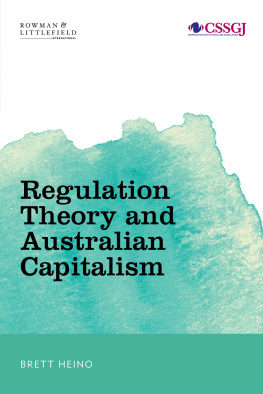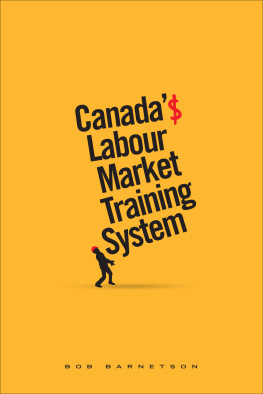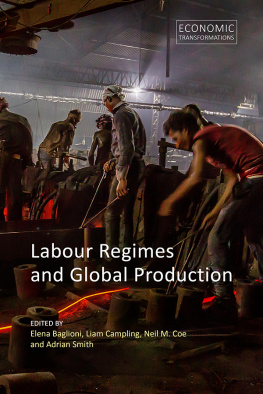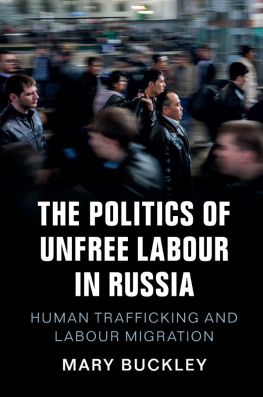Die Deutsche Bibliothek
Ein Titeldatensatz fr diese Publikation
istbeiderDeutschenBibliothek erhltlich
Sindelfingen 2004
byLIBERTAS
editorialversion/March 2004
LIBERTAS - Europisches Institut GmbH,
Lindenweg 37, 72414 Rangendingen, Germany
Tel.: +49/7471/984996-0
Fax: +49/7471/984996-19
eMail :
Internet: www.libertas-institut.com
ISBN 978-3-921929-18-0 (print)
ISBN 978-3-946119-43-2 (epub)
ISBN 978-3-946119-44-9 (mobipocket)
The author Viktor Viktorowitsch Komarovsky isa sociologist in Moscow. He graduated as M. Sc. in history at the Moscow State University and obtained a Ph. D. in 1982. After his years as Senior Research Fellow at the Institute of International Labour Movement between 1976 and 1991 he became Chief of the Laboratory of the Institute of Employment Studies RAS (1991-1993), Head of Department in the Institute of World Economy and International Relations (from 1993) and Director of the Institute of Social Partnership Studies (since 1997). Since 2001 he is Principal Officer of the Analytical Centre for Social Partnership Development (within the Employer Association); since 1999 he was repeatedly active in EU Tacis projects, at present as Senior Expert for Social Partnership in the EU Project on Labour Legislation and Arbitration -
The co-author Elena Sergeyevna Sadovaya is an economist; she lives in Moscow, too. After havingbeen awarded a Ph. D. in economy at Moscow State University, she worked in different research institutes. Since 1993 she is Senior Research Fellow at the Institute of World Economy and International Relations and since 1997 Deputy Director of the Instituteof Social Partnership Studies in Moscow. She can also be reached via
The text of this LIBERTAS Paper has been elaborated in 2002. It was prepared for the Analytical Centre of Social Partnership Development, supported by the Department of the Federal State Employment Service in the City of Moscow.
Truthful and duly information on the ever-varying situation in the sphere of labour market regulation inMoscow a megalopolis of more than 15 million people and the heart of Russias economy - is necessary both for the employee (real or potential) and the employer (national or as international investor). The task of this manual is to give an idea of how andin what directions social partners (trade unions, employers associations and the Government of Moscow), whose basic function consist in regulation of labour relations between employees and employers can influence forming a favourable situation in the labour market in Moscow.
TABLE OF CONTENTS
Introduction |
I . | Specific features of employment problems solution through social dialogue mechanisms under conditions of the modern Russia |
| Preconditions and opportunities to solve employment problems in the framework of the social partnership system |
| Employment problems solution at the federal level. Economic activity of the population in 1992-2001. |
| Employment issues in regional tripartite agreements |
| Employment issues in branch tariff agreements |
II . | Employment problems solution through institutes and mechanisms of the social partnership system at the regional level. Moscow. |
| Contemporary situation at the labour market of Moscow and prospects of its development in 2002-05 |
| Specific features of social dialogue development in Moscow |
| Moscow tripartite commission for social and labour relations regulation |
| Moscow tripartite agreement |
| Special forms of interaction between social partners in the employment sphere - Coordination Council for employment promotion in Moscow |
| Programme of employment promotion for the population of the Moscow City in2002-2005 |
| Labour Arbitration Courtexperimental institute of the social partnership system |
Conclusion |
Introduction
Now widespread is the opinion that the solution of the employment problem as one of the major socio-economic problems in a modern society is one of the most important parameters of maturity and stabi lity in the observed society and at the same time a consequence and a precondition for its successful functioning.
International experience and specific features of the Russian economic development give us grounds to believe that in course of serious economic transformations the significance of the state employment policy will grow constantly since an efficient and purposeful employment policy can essentially speed up the economic restructuring, promoting employment through development of a vocational training and retraining system, constraining occurrence of stagnant unemployment, preventing increase of social tension, improving social climate in the country.
The concrete implementation of employment policy proceeds at the level of regions, territori al and municipal unities, in all fields.
Moscow could be called the most successful example of the regional employment policy implementation as a component of a unified and consecutive process of systematic realisation of progressive development of the so cio-economic complex, social protection and social development.
Certainly one could reckon that the success of Moscow is in many respects achieved thanks to its capital status and the concentration of political, financial and economic activities. However this approach is in many respects lop-sided and prejudiced. Availability of huge resources and opportunities is by no means a guarantee for their efficient and reasonable application. The example of Moscow is interesting and valuable exactly since the succ ess in socio-economic development leans in many respects on the modern management system of complicated processes in the megalopolis life, use of its staff and intellectual potential in the full volume.
During the last of ten years the system of social a nd labour relations regulation and social partnership play an essential role in stable and purposeful development of the Moscow megalopolis, various systems of its functioning, including such important components as the labour market.
Progressive develop ment and improvement of the multilevel social partnership system in the sphere of labour relations allows the Government of Moscow, its social partners to achieve fundamentally important results - social peace and steady progressive development of the city . A basis for sustainability and efficiency of the system of labour and socio-economic relations regulation in the city rests on the network of agreements concluded at different levels and contents, collective agreements at enterprises and in organisations of the city.
At present the advanced and ramified system of interaction between social partners includes 74 and bi- and tripartite agreements. Realisation of these agreements allows to decide confidently the basic tasks of socio-economic development in t he capital, to carry out complex measures promoting industrial manufacturing, to stimulate scientific developments in crucial problems of municipal economy and management, to create conditions for normal functioning of small and medium enterprises, to incr ease living standards of Muscovites and restrain unemployment. The multilevel system of agreements (branch, territorial and special) is closely connected and leans upon the numerous collective agreements concluded at enterprises and in organisations of the capital. In 2001 2617 registered collective agreements regulating labour relations of more than 1,4 million employed were in force in manufacture and service spheres.












